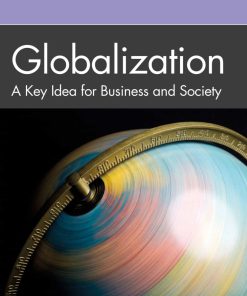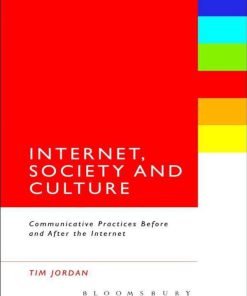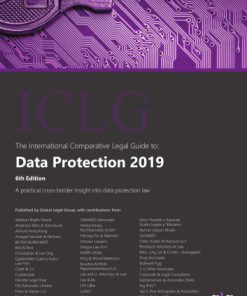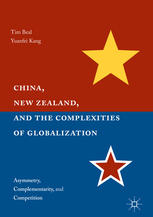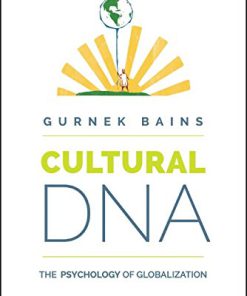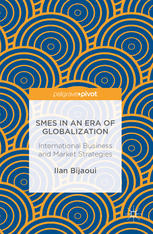The Globalization of International Society 1st Edition by Tim Dunne, Christian ReusSmit 9780192516398 0192516396
$50.00 Original price was: $50.00.$25.00Current price is: $25.00.
The Globalization of International Society 1st Edition by Tim Dunne, Christian ReusSmit – Ebook PDF Instant Download/Delivery: 9780192516398, 0192516396
Full dowload The Globalization of International Society 1st Edition after payment

Product details:
• ISBN 10:0192516396
• ISBN 13:9780192516398
• Author:Tim Dunne, Christian ReusSmit
The Globalization of International Society
The Globalization of International Society re-examines the development of today’s society of sovereign states, drawing on a wealth of new scholarship to challenge the landmark account presented in Bull and Watson’s classic work, The Expansion of International Society (OUP, 1984). For Bull and Watson, international society originated in Europe, and expanded as successive waves of new states were integrated into a rule-governed order. International society, on their view, was thus a European cultural artefact – a claim that is at odds with recent scholarship in history, politics, and related fields of research. Bringing together leading scholars from Asia, Australia, Europe, and the United States, this book provides an alternative account: it draws out the diversity of polities that existed at around c1500; it shows how interacting identities, political orders, and economic forces were intensifying within and across regions; it details the tangled dynamics that helped to globalize the European conception of a pluralist international society, through patterns of warfare and between East and West. The Globalization of International Society examines the institutional contours of contemporary international society, with its unique blend of universal sovereignty and global law, and its forms of hierarchy that coexist with commitments to international human rights. The book explores the multiple forms of contestation that challenge international society today: contests over the limits of sovereignty in relation to cosmopolitan conceptions of responsibility, disputes over global governance, concerns about persistent economic, racial, and gender-based patterns of disadvantage, and lastly the threat to the established order opened up by the disruptive power of digital communications.
The Globalization of International Society 1st Table of contents:
Part I. Introduction
1. Introduction
2. The Globalization of International Society
Four Accounts of the Globalization of International Society
Conceptual Innovations
Conclusion
Part II. Global Context
3. International Systems
Conceptual Framework
The World in 1490
Conclusion
4. Patterns of Identification on the Cusp of Globalization
The Concept of Identity
Collective Identities in 1490: The Ottoman Empire
Collective Identities in 1490: The Aztecs
Conclusion
5. Economies and Economic Interaction across Eurasia in the Early Modern Period
The Contrast of the European State System with Self-Contained Universalist Empires
Broadening Our Understanding of Non-European Systems and Societies
The Chinese Tributary System in Practice
Economic Interaction and Trade without Hegemony: South Asia, South East Asia, and the Islamic World
Eurasian Interconnectedness before the European Moment
Conclusion
6. Native Americans and the Making of International Society
Stag Hunt Narratives and IR Theory
Arguing about the Meaning of the Iroquois for IR
Conclusion
Part III. Dynamics of Globalization
7. Imperial Rivalry and the First Global War
Introduction: Historiographical Context
Historiographical Method
The ‘Long Sixteenth Century’: Imperial Rivalry and Regional International Societies
The Seven Years’ War: Global War and Declarations of Independence
Conclusion
8. Empire and Fragmentation
Interaction versus Expansion
Echoes in Contemporary International Society
Conclusion
9. Beyond ‘War in the Strict Sense’
Conceptualizing War
Wars of Colonization
Constituting Sovereignty and Legitimate War
10. The Role of Civilization in the Globalization of International Society
Introduction
The Multifaceted Nature of Civilization as a Concept
Exploring Civilization in the Globalization of International Society
The Globalization of International Society and the Dismantling of European Empires
The Globalization of International Society in the Twenty-First Century
Conclusion
11. Worlding China, 1500–1800
Introduction
Ideas of and about China
The World that the ‘China Trade’ Created
An Emergent Geography of Power
Conclusion
Part IV. Institutional Contours
12. Universal Sovereignty
The Origins and Early Spread of Sovereignty: Fifteenth to Eighteenth Centuries
The Evolution and Universalization of Sovereignty
The Institutional Characteristics of the Current Universal Sovereign Order
Conclusions
13. Hierarchy, Hegemony, and the Norms of International Society
The Expansion of International Society Thesis and the Equality/Hierarchy Puzzle
Contesting and Legitimizing Hierarchy in 1945
Legitimizing and Contesting Hierarchy in the Cold War
Contesting Hegemony after 1990
Responsibility in a Globalized International Society
Conclusion
14. The Globalization of International Law
Anti-linearity
Recessive Sovereignties
Hegemonic Sovereignties
Globalized Sovereignties
Conclusion
15. The Impact of Economic Structures on Institutions and States
Institutions, Economic Structures…and the English School
The Rise and Decline of the Bretton Woods System
The ‘Global’ Financial Crisis
The European Crisis
Conclusion
16. Universal Human Rights
Universal Human Rights and Universal Sovereignty
The Globalization of Human Rights
A New Revolt against Universal Human Rights?
Conclusion
Part V. Contestation
17. Sovereignty as Responsibility
Sovereignty and Individual Human Rights
International Human Rights and the Limits of Domestic Jurisdiction
Self-determination as Popular Sovereignty
Humanitarian Duties to Civilians in Conflict and Disaster
International Intervention to Protect Civilians
The Responsibility to Protect
Conclusion: New Sites of Resistance and Contestation
18. The ‘Revolt against the West’ Revisited
The Expansion and the Revolt
Beyond the Revolt
Revolt, Resistance, and Revisionism
Conclusion
19. Racial Inequality
Before Hegemony: Abolition
Countering Hegemony: Migration
After Hegemony: Decolonization
Conclusion
20. Gender, Power, and International Society
A Heterogeneous History of Diverse Gender Arrangements
The Exclusion of Women as a Standard of Civilization
Twentieth and Twenty-first-Century Global Inclusion Trends and Transnational Struggles
Conclusions
21. Communication
Communication as a Driver of International Society
From Fragments to Framework: A Reconstructive Reading
Communication from 1500 to 1984: The Printing Press
Communication, International Society, and the Digital Revolution
Conclusion
Part VI. Conclusion
22. Conclusion
Breaking the ‘Norm of not Noticing’
Scaling Up to Strengthen Global Order
References
Index
People also search for The Globalization of International Society 1st:
the globalization of international society 1st edition
the globalization of world politics 7th edition pdf free download
the globalization reader 6th edition pdf
the globalization index
the globalization reader 6th edition pdf free
You may also like…
Business & Economics - Management & Leadership
Globalization: A Key Idea for Business and Society Veronica Binda
Animals & Pets - Field Guides
Birds Of Prey Hawks Eagles Falcons and Vultures of North America 1st Edition Pete Dunne
Business & Economics
Education Studies & Teaching
The Globalization of Science Curricula 1st Edition Oliver Stacey
Business & Economics - Human Resources
Cultural DNA The Psychology of Globalization 1st Edition Gurnek Bains
Politics & Philosophy - Anthropology
Reading theory now an ABC of good reading with J Hillis Miller 1st Edition Dunne
Business & Economics




